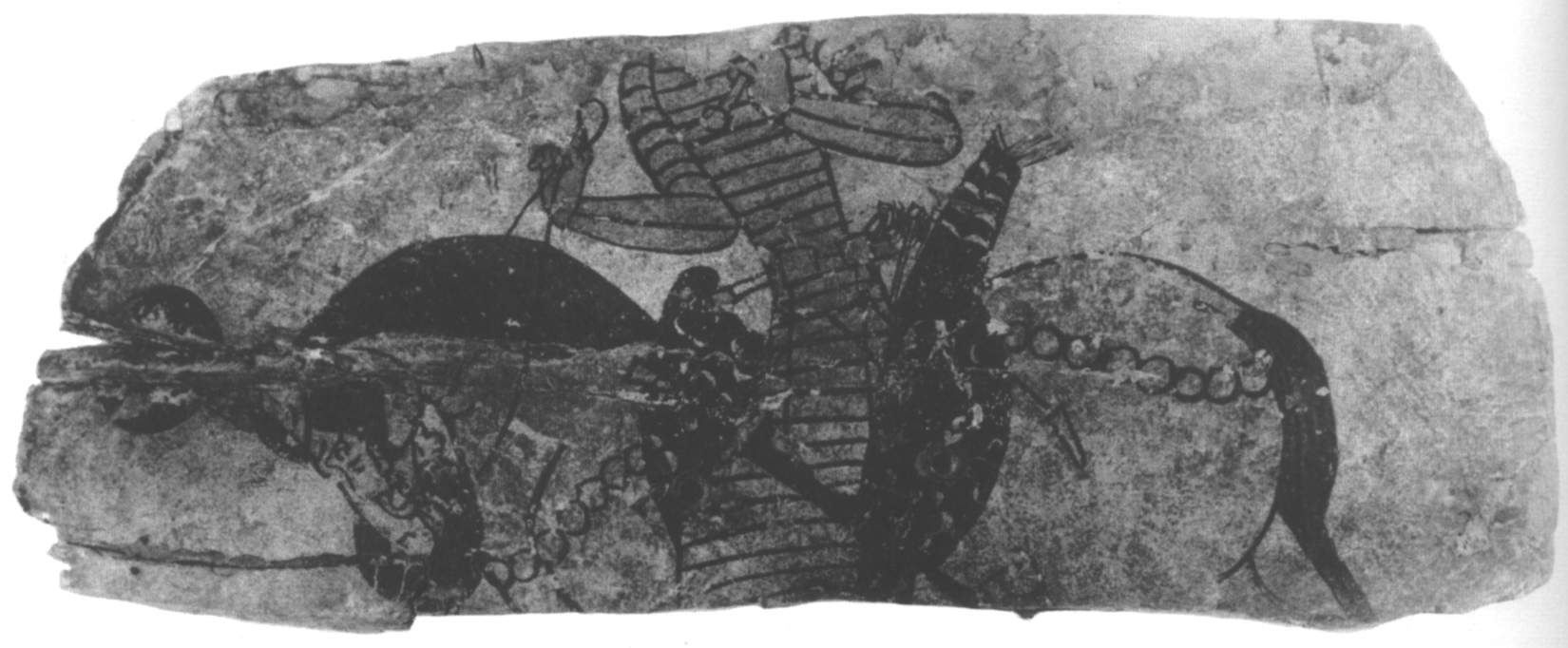|
Tamara Talbot Rice ANCIENT ARTS OF CENTRAL ASIA Painted Soghdian Horseman on a Shield from Mug |
|
Tamara Talbot Rice ANCIENT ARTS OF CENTRAL ASIA Painted Soghdian Horseman on a Shield from Mug |
Illustration 78, p96 in Tamara Talbot Rice, Ancient Arts of Central Asia, 1965
78 Though only the central portion of this painted shield survives, it suffices to show that the broad-shouldered, wasp-waisted hero of Islamic Persia was already admired in the eighth century. It was found at Mug castle
p. 96
... Numerous coins, seals, articles in silver and bronze, weapons and fragments of silk and cotton stuffs were recovered from the site but, apart from the manuscripts, the importance of which can hardly be equalled, the most interesting find consisted of a wooden shield (Ill. 78) covered with fine leather decorated with a painting of a rider. Though only the central panel survives, with the result that the rider's head and feet are missing, the painting is in good condition. Enough remains to show that it was executed in the same style as the mural-paintings which have been discovered more recently in various parts of Soghdia. All clearly belong to the same flourishing, distinctive and accomplished school as the lost fragments from Afrasiab, and the group as a whole provides enough evidence to justify the suggestion that it was works such as these that played an all-important part in fashioning the style of Persia's school of Islamic painting.